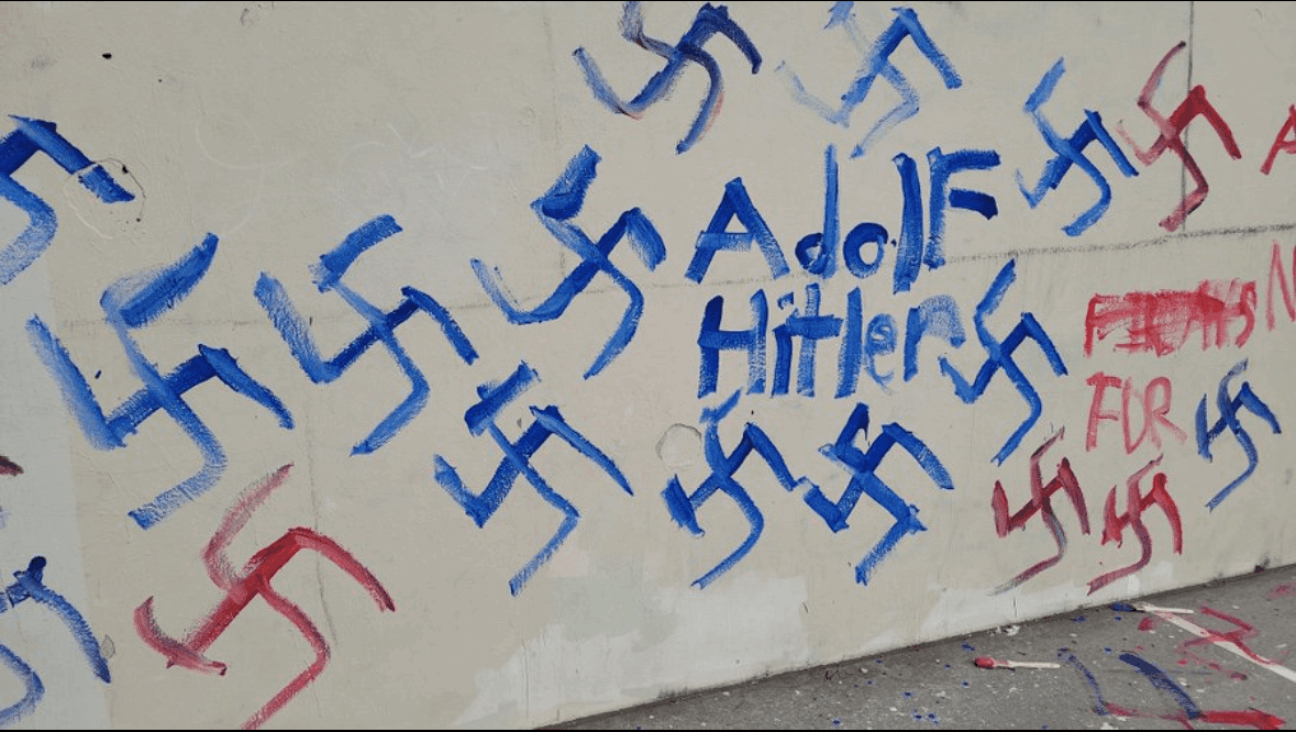The Bund’s Last Battles
For Our Freedom and Yours: The Jewish Labour Bund in Poland, 1939-1949
By Daniel Blatman, translated by Naftali Greenwood
Vallentine Mitchell, 242 pages, $26.
* * *|
The socialist Jewish Labor Bund came into being in October l897, when 13 men and women, representing several underground revolutionary groups, gathered in a shabby house in Vilna, Lithuania, careful not to rouse the suspicions of the czarist secret police. After several days of intense debate, they adopted a resolution proclaiming the formation of the General Jewish Workers’ Bund of Poland and Russia, later broadened to include Lithuania.
It did not take long for the Bund to become famous — or notorious — in the czarist empire. Several of its leaders were instrumental in founding the Russian Social Democratic Labor Party in 1898, which later split into the Bolshevik and Menshevik wings. For a while, the Bund was the largest socialist party in Russia. It maintained an impressive multilanguage press, and its activists were among the most sedulous organizers of industrial strikes and political demonstrations. Members of the Bund also became major spokesmen for Jewish cultural autonomy, promoting Yiddish as the national language of the Jewish masses. (At the turn of the last century, Yiddish was used daily by about 11 million people.)
In 1918, the Communist (nee Bolshevik) Party, headed by Vladimir Lenin, mounted a relentless campaign portraying the Bund as “a traitor to the working class.” At the same time, it urged the Bund’s “honest proletarian” members to join the new Third International (Comintern). Since the latter would have meant forswearing any independent political activity, it was not surprising that only a few Bundists succumbed to the pressure. The rest of the members reconstituted the party in 1918 as the Jewish Labor Bund of Poland.
Over the next two decades in Poland, the Bund gradually changed from a sectarian party to one that enjoyed the support of the vast majority of Polish Jews. The secret of this remarkable success was not so much the attractiveness of the party’s Marxist ideology as its courageous fight against the rising tide of fascism and antisemitism in the country. From a “class party,” the Bund emerged unabashedly as a defender of the “Jewish masses” in toto, whose liberation lay in the creation of a democratic socialist society with full rights for all its nationalities.
Daniel Blatman, an Israeli historian associated with the Hebrew University in Jerusalem, wisely decided not to take on the entire history of the Bundist movement from its inception to its denouement, but rather to focus on its relatively lesser known final chapter. A result of extensive research and numerous personal interviews, “For Our Freedom and Yours” — the title refers to the Bund’s slogan, which it adopted from Polish insurrectionists of the 19th century — conjures up an arresting picture of a large political party thrown into turmoil by the German attack, losing contact with many of its constituents and control over the institutions it had carefully cultivated for decades.
The Germans invaded Poland on September 1, 1939. On the 17th of that month, Moscow sent its troops to “liberate” Polish Ukraine and Belorussia. Polish and Jewish workers’ brigades (as well as chasidim in their black hats and kapotes) courageously came to the defense of Warsaw, while the government of colonels and generals, with their jewelry-bedecked wives and daughters, took off by air for “political asylum” in Romania. Thus the fate of Poland was effectively sealed.
At hastily convened meetings, Bund members decided that the party elite should leave Warsaw and other towns as quickly as possible, lest they be captured by the rapidly advancing German army. Many Bundist leaders eventually reached the United States, immediately embarking on activities, including the publication of a monthly journal, collaboration with like-minded groups in the United States and efforts to assist their comrades in Poland. For many Bundists (as well as members of other Jewish organizations faced with the same dilemma), the decision to leave Poland was a wrenching experience. Indeed, some who reached Russia in the autumn of 1939 turned around, braving arrest and even death in order to be with their families, their comrades and the remnants of the once-vibrant institutions they had helped to fashion.
On the whole, then, it was the older Bundists who took to the road, while the younger generation was more inclined to stay put. It is in this regard that Blatman makes one of his most valuable contributions to our understanding of that nightmarish period.
The Bund was the largest Jewish left-wing political party in Poland before the war, with ties to the Polish Socialist Party, the Second Socialist International and American trade unions. In addition, the Bund had a representative in the London-based Polish Government in Exile. As Blatman shows, it was actually the Tsukunft, the Bund’s youth organization, that ran most of the party’s underground activities, especially in the realms of culture, publication and education. He rightly stresses the role of the Bund/Tsukunft without minimizing the importance of the Zionist groups — the Hashomer Hatzair, Dror Hechalutz, Gordonia and others. These were, however, exclusively youth groups, without institutional ties to political parties; furthermore, their activities before the war concentrated almost exclusively on preparing their members for aliya to Palestine. Their contacts with non-Jewish organizations were thus limited.
Similarly, Blatman sheds a good deal of light on the internecine disagreements among the groups that by late 1942 had established the Jewish Fighting Organization in the Warsaw Ghetto and similar organizations elsewhere. Many Bundists, conditioned by years of acrimonious relations with Zionist groups, and furthermore still placing their faith in some kind of common “proletarian” (i.e., Polish-Jewish) front against the Nazis, had for a time resisted the idea of joining their ideological adversaries. A “historic compromise” was eventually reached on the part of the Bund, largely due to the efforts of Abrasha Blum, one of Tsukunft’s most charismatic leaders. Once the obstacles were overcome, the Bundists, Shomrim, “Chalutzniks” and others fought side by side with an esprit de corps many of the survivors would recollect, movingly, in the years to come.
If the Warsaw Ghetto Uprising and other desperate acts of resistance may rightfully be numbered among the Bund’s finest hours, the Bund’s peregrinations after the war — sadly — cannot. In postwar Poland, with its millions of graves and rabid antisemitism, and with a Communist regime bent on establishing exclusive control over all forms of organized activity in the country, the Bund effectively had no place. Some Bundists pretended to subscribe to the official optimistic philosophy that asserted that Jewish life in Poland could arise, like a phoenix, from its ashes. A few collaborated opportunistically with the Communists. But most simply wanted to leave the country for good.
Similarly, in the United States and Western Europe after the war, the hope to rebuild the Bund on its prewar model — even to establish some international structures — could not but come to naught. A simple statistic will illustrate this conclusion: During its entire existence in the United States, over more than half a century, the Bund did not succeed in enlisting any new members, neither children nor young adults, nor any institutions grounded in American Jewish life.
Here, I am afraid that Blatman, who charts so careful a course through the last 10 years of the Bund’s life, seems to lose his bearings. The Bund might have survived, he suggests, had it not missed the boat by failing “to equip the Bund with a new ideology.” Yet earlier he admitted that “a political movement with an extensive set of historical images does not change its stripes overnight.” Nor over half a century, one might add.
In the end, he returns to firmer if somber grounds: “Where there is no Yiddish culture,” he writes, “no Jewish proletariat, no separate Jewish activity and no struggle for equal civil rights for Jews, there is no Bund.”
Precisely.
Abraham Brumberg has written frequently on Eastern Europe, Russia and Jewish affairs. He is now writing his personal memoirs, to be called “Travels Through Vanishing Worlds.”
















